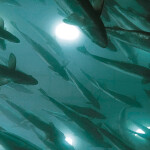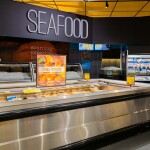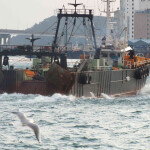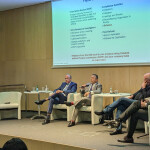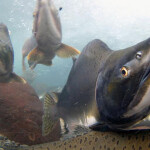Filters
Product Categories
The Nanoculture Project: Exploring the Impacts of Nanoparticles on Seafood
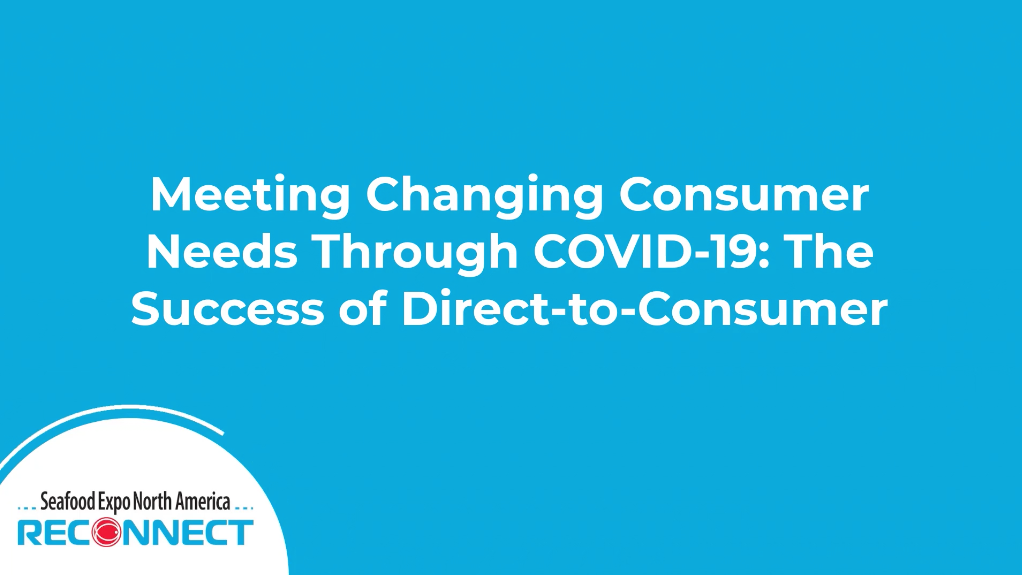
Speakers: Richard Stavis, Founder – Stavis Consulting; Ian Amin, Senior Director of Supply Chain - Home Chef; Arron Kallenberg, Founder & CEO - Wild Alaskan Company; Rob Knecht, CEO/Co-Founder - Real Oyster Cult; Stephanie Pazzaglia, Business Development Manager - J.J. McDonnell & Co
Session Description: Few if any companies could have anticipated the path that 2020 took. Multi-generational patterns of shopping and consumption were upended when the COVID-19 pandemic shut down communities both by law and by practice as we stopped visiting our favorite establishments, stopped visiting with friends and family and sheltered in place. In the USA, seafood has traditionally been consumed primarily in restaurants. The question we all asked ourselves was, will consumers find a different way to get and eat seafood? Thankfully, the answer has been a resounding yes. Session panelists describe their successes and challenges in finding, defining and serving that market. Some challenges relate to rapid scale-up of in-specification inventory and order fulfillment capacity. Others involve pivot of company focus and reinvention of product line, customer base, payment and delivery logistics. One thing that all of the “winners” of the COVID-19 crisis have in common is a skillset that includes market analysis, a willingness to adapt and rapid implementation of new tactics.
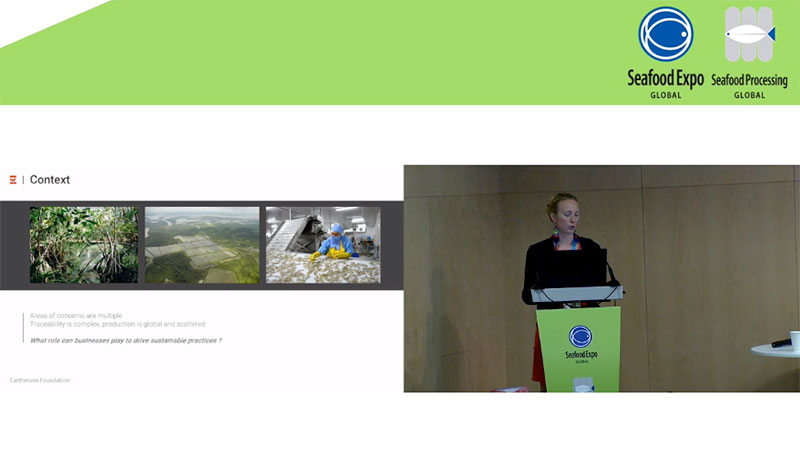
Shrimp farming has a unique impact on the environment. This panel session seeks to explain how some French companies pre-competitively joined forces with Ecuadorian shrimp producers to assist in sharing improved practices. This panel will be moderated by Florie Hovine, initiative coordinator, from the Earthworm Foundation. Panelists will include Justine Delettre, from Nausicaa Aquarium to talk about the Mister Goodfish program, and how the program is recognizing good farming practices and promoting shrimp products in stores. Philippe Blais from Unima will represent the French consuming market. He will testify on why this work is important for those companies, and the value they see behind improved practices. Lastly; Alejandro Aguayo from Langosmar will talk about adopting sustainability efforts and the difference it can make for customers.

Cell-cultured Seafood: How BlueNalu went from small startup to attracting mainstream funding

New, 1-Year Master’s in Ocean Food Systems from UNE
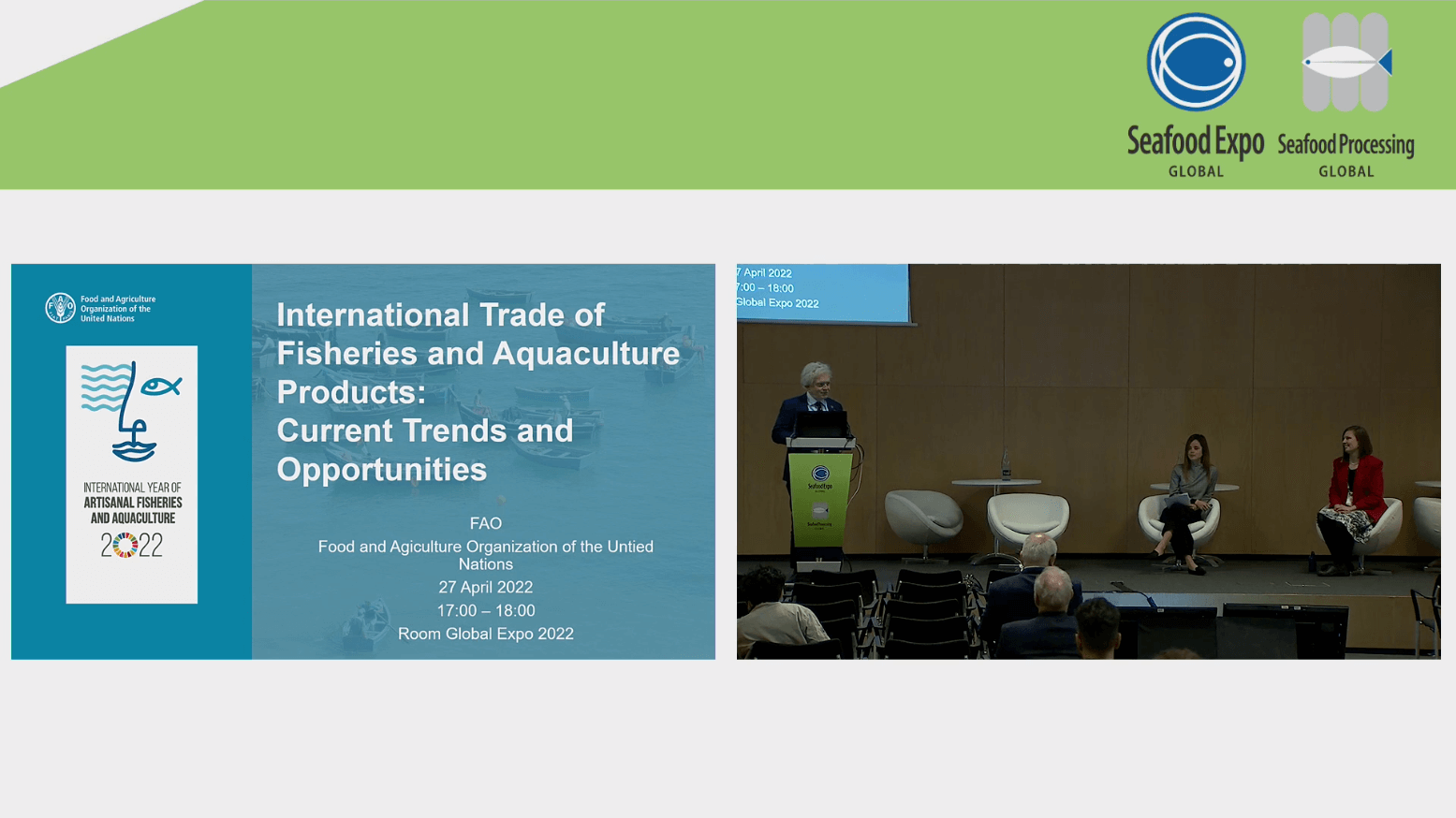
Speakers: Audun Lem, Deputy Director, Fisheries and Aquaculture Division - FAO, Giulia Loi Food Safety Advisor - FAO, Christine Rolin, Ms/Aquaculture Specialist - FAO, Mariana Toussaint, Fishery Expert - FAO
Fisheries and aquaculture products are currently the most traded animal protein worldwide in value terms. The associated industry is also characterized by a wide range of product types and participants, making trade global, diverse, and complex. In recent decades, the fisheries and aquaculture sectors expanded significantly with an increase in overall production, trade and consumption.
The FAO Session will present a general outlook of international trade of fisheries and aquaculture products. It will also explain the causes of import notifications of fisheries and aquaculture products at the main importing markets, and present an overview of seaweed and microalgae in global aquaculture development.
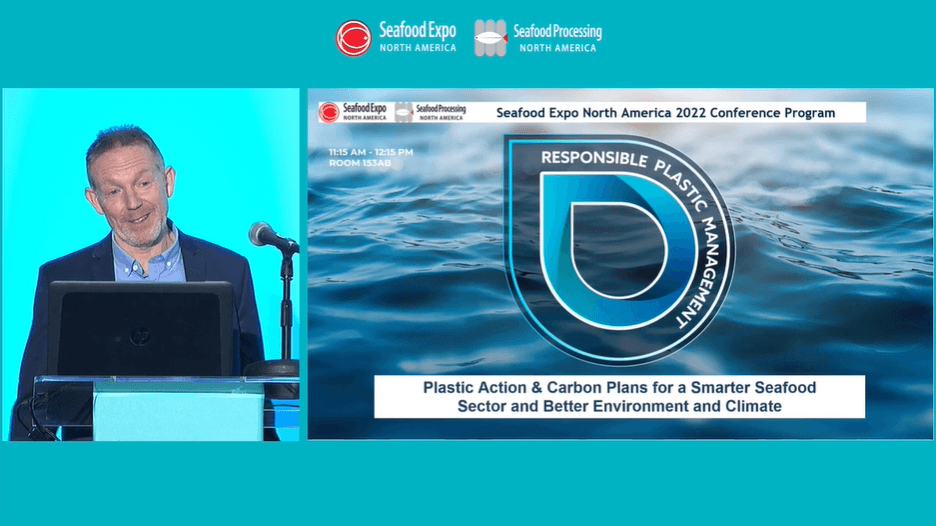
Moderator: Dave Garforth, The Responsible Plastic Management Program CIC
Speakers: Joel Baziuk, Global Ghost Gear Initiative C/o Ocean Conservancy
Peter Marshall, Responsible Plastic Management Program
Plastic is an essential component used extensively throughout the global seafood industry. From nets, floats, pens, boxes, tubs, bags, liners, clothing, PPE, belts, walls, floors, even boats. It assists with catch efficiency, design innovation, durability of infrastructure and equipment, seafood product protection, insulation and prevention of food waste and much more. Unquestionably the most important material we have ever possessed. But few can ignore the negative impact of global plastic mismanagement on the environment and on climate change. Plastic mismanagement after use has caused a pollution crisis and a call on more virgin plastic to be produced. The production and destruction of global plastic accounts for 56 billion tons of greenhouse gas emissions. Plastic management must be integrated into organizations sustainability and carbon reduction action plans and frameworks for better business and a better environment. Plastic is made almost entirely from fossil fuel which means it has a significant carbon footprint. But at the same time, it can offer significant advantages in comparison to other materials and, used correctly and managed responsibly, can offer significant carbon reduction advantages. However, we have sufficient information and tools to make these comparisons and ensure we make better choices. A global shift in the way the industry uses plastic could bring about a substantial contribution to carbon reduction (reducing virgin plastics) and GHG emissions and seafood plastics needs to be included in the equation to reverse climate impact and the loss in nature.
However, we are only just starting to unravel the seafood plastic footprint and adding the extra dimension of mapping the seafood plastic carbon footprint will be a challenging endeavor, particularly if corporates and businesses must go it alone. Key questions arise. What are the full considerations and the extent of this double mapping task? What are the significant contributions to plastic footprints and what are the significant actions that reduce both plastic impacts and carbon emissions…and whilst maintaining viable businesses and importantly, ensure seafood continues to contribute to global food security? What are the policy implications and conflicts (e.g., food packaging legislation versus recycled content), what are the required economies of scale for collection and recycling, what are the infrastructural requirements and what are technology gaps need to be addressed?
This session identifies how this can be achieved. The panel will be managed by the Responsible Plastic Management Program and the speakers are experts in the field of Plastic Management and Sustainability Frameworks. Mapping plastic use, life cycle, end fate and leakage from the global seafood sector is an emerging activity and forming part of the seafood ESG agenda but is a very recent endeavor. What has yet to emerge, are the facts of if, how and to what extent a reduced seafood plastic footprint contributes to a reduced carbon footprint. The Responsible Plastic Management Program is a not-for-profit global assurance and improvement initiative for organizations seeking to engage with a responsible plastic management strategy. The RPM Program is engaged with over 15 industry sectors and works across key plastic driven initiatives.
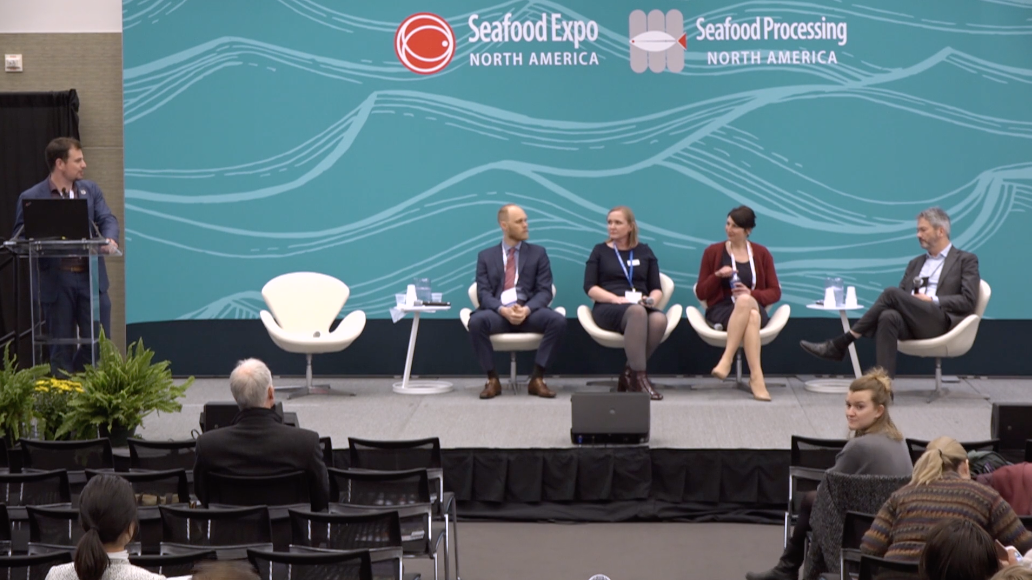
Speakers: Herman Wisse, The Global Sustainable Seafood Initiative (GSSI); Darian McBain, Thai Union; Hugo Byrnes, Ahold Delhaize; Sonja Schmid, The Consumer Goods Forum; Joe Zelasney, Food And Agriculture Organization
Globally, great efforts have been made to ensure seafood is produced and traded in an environmentally sustainable manner, while the promotion of social sustainability in seafood value chains has been much slower. The need to address critical social labor issues in the seafood industry is now globally understood and widely acknowledged. For this session, GSSI will be joined by the Consumer Goods Forum’s Sustainable Supply Chain Initiative (SSCI) to discuss the two organizations’ collaboration to develop a global benchmark for social compliance schemes in the seafood sector. By providing an open-source list of recognized schemes, the GSSI – SSCI benchmark tool will deliver clear guidance on which seafood schemes cover key social compliance criteria and apply robust verification practices. GSSI and SSCI will also be joined by industry experts from across the supply chain and international organizations to discuss the role of international instruments and the importance of multi-stakeholder collaboration in safeguarding human rights throughout seafood value chains.
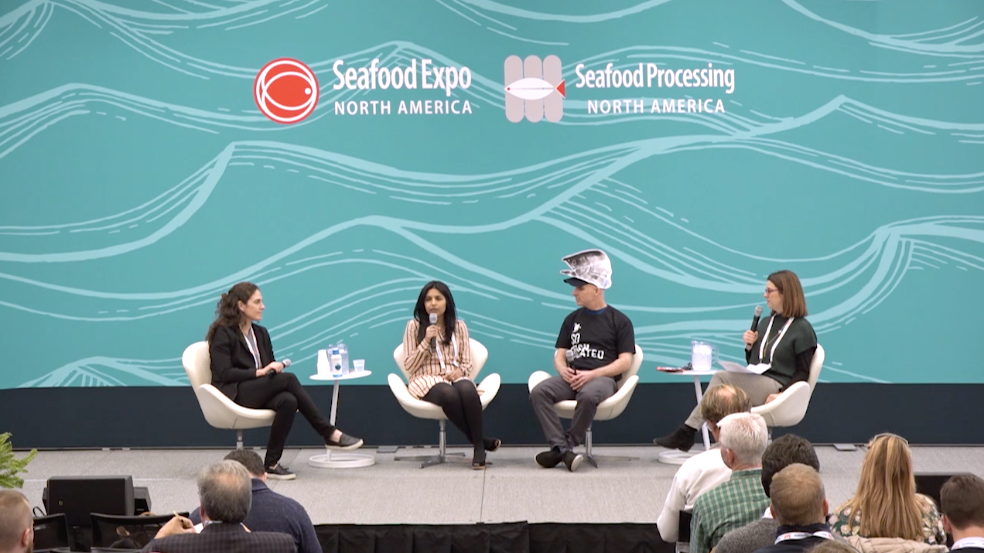
Speakers: Carol Ortenberg, NOSH / BevNET; Poorvi Patodia, Biena Snacks; Ken Plasse, Fishpeople; Kate Weiler, Drink Simple
The seafood industry has historically been very supply driven. But today’s consumer doesn’t want to be “sold” on what they need or engage in a one-way transaction with a company. Instead, they want to belong to a brand. In this panel, hear from experts in the natural foods and meal-kit world who have built successful, fast-growth, venture-backed businesses that are solving unmet consumer needs and building long-lasting relationships to help fuel future company growth. The aim of the panel is to give attendees a better understanding of how to meaningfully market to millennials and lessons on building an enduring brand that will drive company value and growth. Panelists will present examples of successful marketing programs, consumer research findings, and actionable suggestions. They will engage the audience with mobile polling along the way. The goal is for half the session (or more!) to be left for audience to ask questions.

Genetics and the Path Toward American Shrimp Dominance

